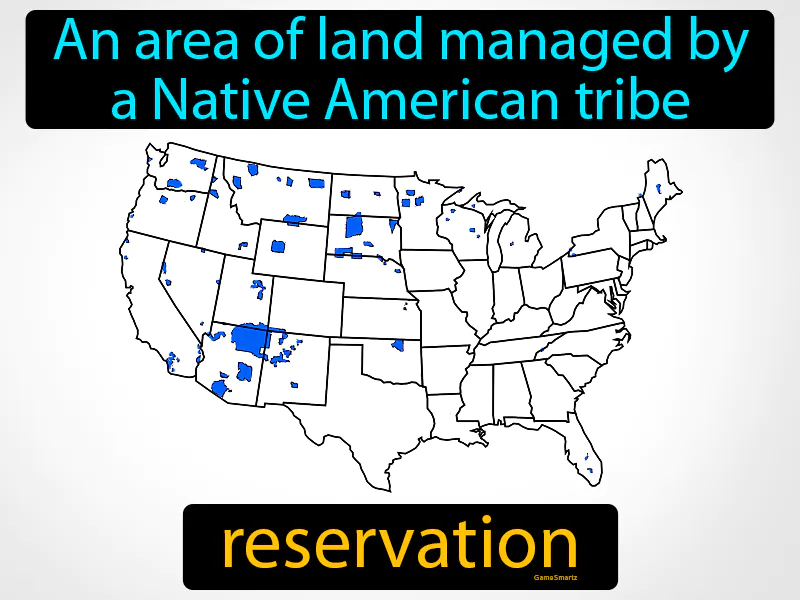Reservation
Reservation:
During Western Expansion from 1880 to 1900, reservations were areas of land where Native American tribes were forced to live, often in undesirable locations. These lands were crucial because they represented attempts by the U.S. government to control Native American populations and open up more territory for settlers. To many Native Americans, reservations symbolized loss of their traditional lands and way of life, as well as broken promises by the government. Today, the concept of reservations still matters because they serve as centers of cultural preservation and autonomy for Native American tribes. For example, the Navajo Nation reservation enables the tribe to maintain their cultural practices, language, and governance, reminding us of the importance of preserving cultural identities and respecting indigenous rights.

Practice Version

Reservation: An area of land managed by a Native American tribe. Reservation. In history, a reservation is land set aside by the U.S. government for Native American tribes to live on, often as a result of treaties or forced relocation.
